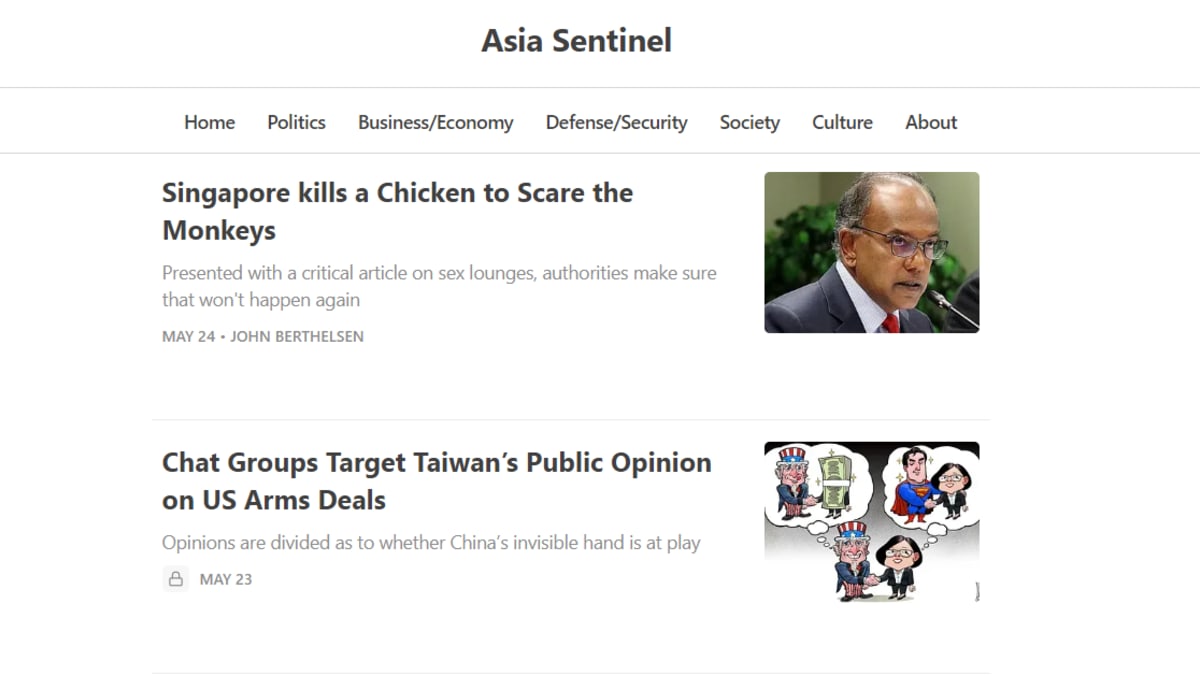Singapore to block Asia Sentinel website for not complying with POFMA correction direction

SINGAPORE: Internet access service providers in Singapore have been ordered to block the online publication Asia Sentinel after its non-compliance with a correction direction under the Protection from Online Falsehoods and Manipulation Act (POFMA), the Ministry of Communications and Information (MCI) said on Friday (Jun 2).
The California-registered publication was required to carry a correction notice alongside its May 24 article, which the Ministry of Home Affairs (MHA) said contained several falsehoods.
The Infocomm Media Development Authority has been directed to issue access blocking orders following Asia Sentinel’s non-compliance with the correction direction, MCI said in its press release on Friday.
MCI said that the correction direction issued to Asia Sentinel required the facts to be juxtaposed against the falsehoods, so that end-users in Singapore can read both versions and draw their own conclusions.
“While Asia Sentinel carried the correction notices, this was not done in compliance with the requirements of the correction direction for the respective correction notices to be situated at the top of the article and at the top of the main page of the website,” MCI added.
The access blocking orders require internet access service providers to disable access for end-users in Singapore to the online location where the falsehoods were communicated, it said.
The access blocking orders will be cancelled should Asia Sentinel subsequently comply with the “full requirements” of the correction direction.
MHA reiterated earlier on Friday that Asia Sentinel did not have to take down its May 24 article and the online publication was only required to post the correction notice in the manner that has been stipulated.
“If Asia Sentinel truly believes in free speech, it should be happy for its readers to read both the article and the correction notice, and make up their own minds which is true,” the ministry said.
POFMA’s primary tool to correct falsehoods is via a correction notice, “which must be placed in a specified proximity to the original post with a link to the government’s clarification”, according to MHA.
“This is akin to the right of reply practised by newspapers and magazines.”
Similar requirements have been placed on other recipients of correction directions and they have complied, MHA noted.
A check by CNA at 3.30pm on Friday found that the correction notice on Asia Sentinel’s article was placed below an editor’s note which stated the online publication was “reserving the right to answer their (the Singapore government’s) demand at a future time” and that “we stand by our story”.
The correction notice was also not carried at the top of the main page of its website.
Source: CNA















